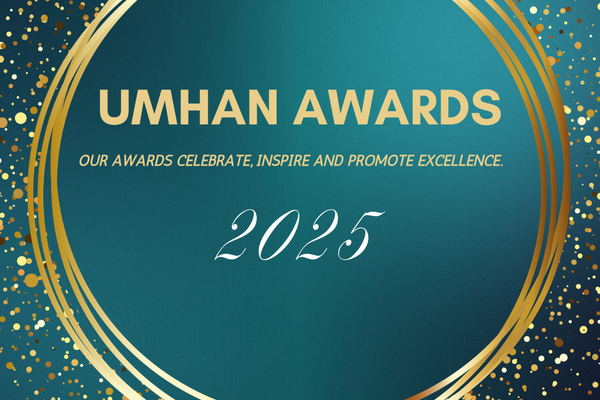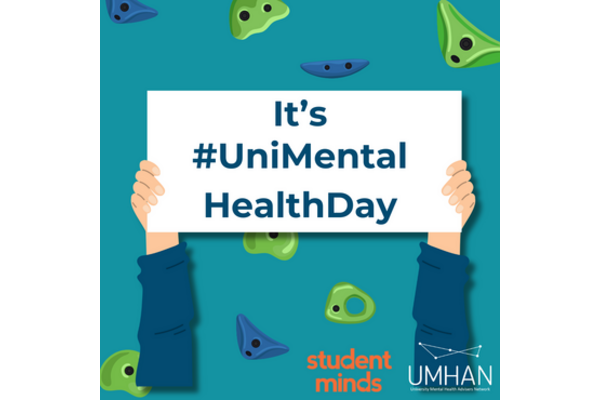About me
I’m Jay, a wellbeing advisor at Salford University, and I write this as a mental health professional who is diagnosed with ADHD at 30 years old. I wanted to write this as I can see there isn’t much on ADHD – particularly from practitioners.
Having had previous diagnoses, like Dyspraxia, Dyscalculia, Generalised Anxiety and Depression, I was met with curiosity when I found my eldest sister was diagnosed with ADHD and both nieces were ASC. I hadn’t thought any more of it prior to this, although I knew I thoroughly enjoyed working with neurodivergent individuals, more so than your ‘typical’.
As soon as I was diagnosed… I hadn’t anticipated what it would genuinely be like. I was left mostly confused, for a better word, as I looked at my life as a timeline, understanding that my experiences weren’t exactly normal. I know normal is subjective regardless, however, in this case I would ponder on what was me, and what was ADHD – where does each start and end. Having to unlearn and relearn using past experiences to inform my presence (and future). I’d be lying if I said I didn’t experience a period of ‘grief’ in letting go what once was and embracing what now is, and it took some time to lean into it.
Things I have learnt about myself
The things that I have learned so far about myself, just through reflection and others' neurodivergent voices have been interesting, and these are as follows:
Dopamine
With low levels of dopamine, I seek things that promote the ‘feel good’ factor. This can be anything, and I mean anything. I drink a lot of caffeine, am a smoker, and will have bursts of energy. But when I come down – I crash land.
Trying to consistently strike a balance of inconsistent enjoyment and relaxing, is as you can imagine, a real chore. Think of it like 2 switches in the mind, 1 being ‘active’ and the other being ‘rest’. In a neurotypical mind, these interchangeably turn and off in response to what is happening around us. In our minds, they’re either both on or off. Hence the restlessness, fidgeting, frustration of wanting to rest and inability to. There have been times where I have been grumpy, even times where I have been drowsy and end up fidgeting.
Time organisation/blindness
It’s either ‘now’ or ‘not now’. If I’m told something will happen later, we know later can be interpreted in any way. Tell me when. If you’re going to tell me we have a meeting coming up, tell me when. Otherwise, it won’t happen. And if you do, I’m either going to be very early or very late as I attempt do everything, everywhere, all at once (film title pun intended).
Rejection sensitivity
This is a HUGE one. One that I experience often.
It is the phenomena of experiencing perceived rejection as though it is real. It’s a physical and emotional reaction, and to the outside word, I appear either erratic or strange as I experience this. It can be the perception of a rejection that has happened, is happening or about to happen. It can certainly be caught but imagine it as though you are playing whack-a-mole – you have milliseconds to hit it, and if you’re not paying attention as it can come up without warning,
It is difficult to catch as it often can appear without warning, and so I’ll respond abruptly to the outside world – because, to me, I’ve been rejected already in some way, somehow. Or I’ll seek reassurance that what I had said or done 4+ months ago was OK…
Injustice and unfairness
At school, I was a child who kept well in line. I had my moments of chatting in the back and occasionally back chatting to the teachers, who didn’t? Although, if I did not agree with whatever was going on, I would firmly say this and explain why.
The sense of injustice is a lot to bear, and I can come across quite blunt and hostile about it. It has taken work to be diplomatic, focusing on how to say this rather than what to say. Where it feels unethical and immoral, I am quick to speak. I attempt to remember that there is a time and a place for such conversations and will explore what benefit I would take if the conversation would go into x y and z, though my emotions tend to take the wheel rather than my logic.
In places of work, we can often (more often than not) experience our voices being ignored and dismissed. This alone is enough to spark my anger and if I’m not careful, can create my own trouble.
Even though causing a stir can bring around change, the importance is whether the battle is worthwhile (and who are we battling for).
Hypervigilance/fixation
We’re highly self-aware folk, and that’s down to being hypervigilant around others and our surroundings. We will fixate on things we enjoy, learning everything there is to it in what can feel like a matter of minutes, before moving on to the next.
We’re very curious deep thinkers, often balancing the fine act between critically analysing and… well, just being critical of ourselves. We certainly can discern.
In therapy, while we may appear as self-aware, we struggle attending to our emotions, and this is where we experience emotional dysregulation. If you have heard of the term intellectualising, and/or ‘flight to reason’, this is our way of working. I know what I am thinking and what I am feeling… but what’s next?
Executive dysfunction
Heard of the term organised chaos?
I cannot plan the typical way, to save my life. My plans are messy, confusing and often complicated – but that works for me, and I will deliver the outcome (sometimes exceeding expectations). If you’re going to give me instructions, these need to be clear and written. Otherwise, it won’t happen. If I’m given a task that’s quite repetitive and mundane, it will take me longer to do than expected because, basically, it’s boring. What I’ve come to find is that it’s not boring, it’s hard. Hard to stay focused on a task that appears quite easy to get through. I can develop numerous ideas which seem fantastic, though actually starting it when I am fixated on the end result, is a trick.
Masking
Oh, so common. Burnout is strongly associated with masking, as we attempt to move around ‘undetected’ from being different. We learn that to be different from societal standards means there is something seriously wrong with us, and where there is a perception of wrongness, we’re judged for that – even isolated. We seek a sense of belonging, as everybody does and to be without a belonging comes an overwhelming sense of depression. Think of it as a car, I’m manually changing gears to blend in with the rest of the traffic, while others appear to move through quite easily and automatically. It takes a lot of unseen hard work.
A big part to masking is gender norms – men are to be strong leaders, while women are to be courteous and obedient. Anything outside of this is understood to be problematic, which nobody wants to feel and believe. Even in today’s world, gender is a leading factor on many other factors, which is another story…
Disability
Would I consider myself disabled? Yes, I would. Because that’s a fact – it’s a disability. No matter which way you look at it, we are navigating a world that does not feel built for our needs.
I refused medication, as frankly the abilities my ADHD has given me has seen me this far in life and make up my personality. It’s great that people are being educated on ADHD, however, what I feel is missing is that ADHD does not look the same in every person, and in our roles, that is a real key part to consider i.e. intersectionality, cultural differences, generational beliefs, underlying/combined health difficulties all in which contribute to each psychological makeup.
Amongst all of this, what I have also learned is that I can now more confidently and congruently connect with neurodivergent individuals as I gained the reasons why I enjoyed working in neurodiversity.
We may be riding the same seas, but we’re in slightly different boats. And while ADHD is a disability, you can certainly harness the abilities it gives you, than be hindered by what it hasn’t given you.
Some of what it gives you:
Calmness
We’re great in a crisis. We’re aware that when crisis meets crisis, nothing happens or gets done. We’re action-orientated and will put emotions to one side, as we know emotions can often blur and cause unnecessary reactions – logically responding than emotionally reacting. It’s what makes us great leaders. We may be chaotic thinkers, but maybe it’s that nothing can compare to our own…?
Creativity
I have always loved art and creativity. I change my hair cut and colour often, I wear clothes that you wouldn’t ‘normally’ put together, and I do stand out as a result, understandably – anything that resembles the glam/punk rock era, is my thing.
My creativity is my authenticity and is my very own therapy, it makes up a huge part of my personality. It’s something I won’t ever sacrifice or diminish for anybody or anything. If you ask me to be creative, I will know no limits and may need to be told where to stop.
I intend to one day deliver expressive art therapy. I love it.
Intuition
I can smell disingenuous and untrusting people a mile off. I will pay attention to what you say, what you don’t (or won’t) say, and how you behave. If my gut says no, it is a no, and I will do everything I can to keep contact minimal or zero.
It’s difficult to explain, though I take solace in that this is a ‘sixth sense’. We see patterns, and we register those for future interactions. Our hypervigilance helps with this, paying attention to the miniscule of details in order to navigate things safely. Whether it be gently challenging through ‘saying what we see’, or avoiding it completely, we can’t unfeel what we feel.
Resilience
We take risks. We’re curious and critical thinkers, so we want to try things out and deliver newfound knowledge. Following our calmness in crisis, we can think outside the box against risks associated with those things attempted, looking for what good was taken out of things that maybe weren’t so good. We don’t like stagnation; we want to grow and move around. We get a huge dopamine kick, and we’re not trees!
______________________________________________________________________________________________
Overall, being diagnosed with ADHD has been a journey for me. And will be. I have my days. Some of which I learned in my childhood, still helps me today.
What I would strongly recommend is investigate cognitive-behavioural therapies, coaching, reasonable adjustments like noise cancelling headphones, desk adjusters, even changing your laptop colour theme and background to help information process easier. We have support now, like Access to Work, so let’s use it and show our students that we experience neurodivergent difficulties in our own ways, just as much as they do.
We’re all human, right?









